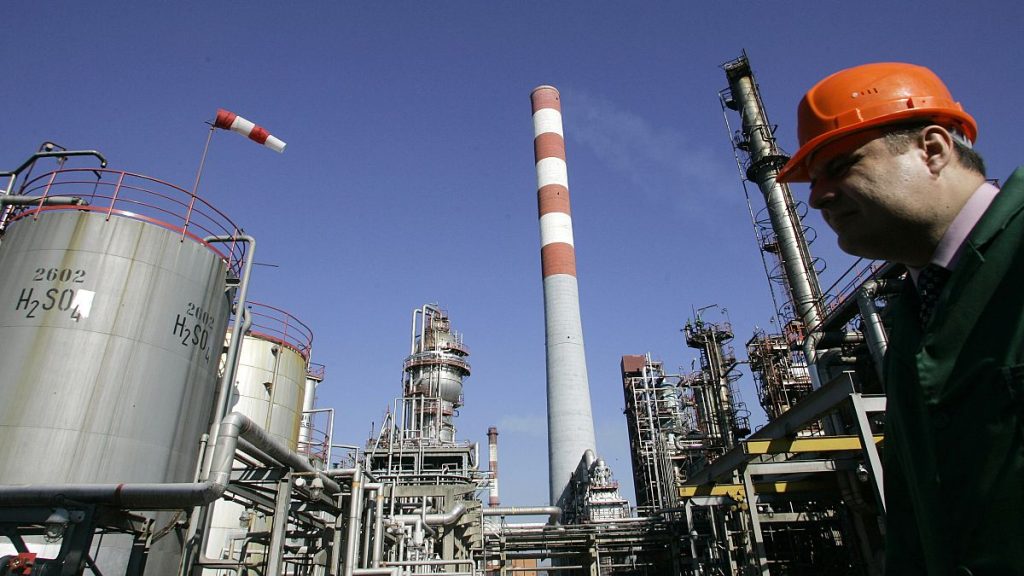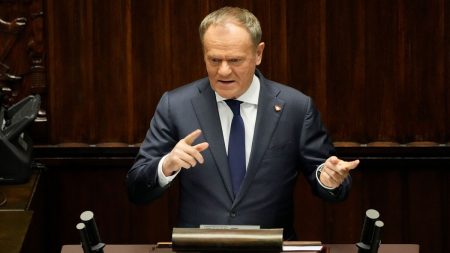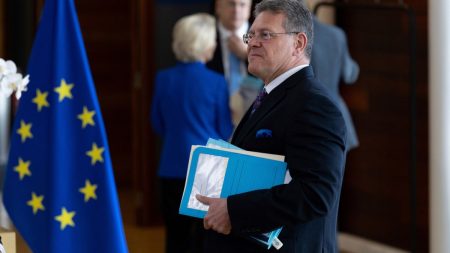The looming threat of US sanctions against Serbia’s Naftna Industrija Srbije (NIS), the country’s largest oil and gas company, has cast a long shadow over Serbia’s delicate balancing act between its historical ties with Russia and its aspirations for closer integration with the West. Serbian President Aleksandar Vučić announced the impending sanctions, citing NIS’s majority Russian ownership as the catalyst. This development underscores the increasing pressure on Serbia to align its foreign policy with the West, particularly in light of Russia’s ongoing conflict with Ukraine. While Serbia has condemned the invasion in international forums, it has refrained from imposing sanctions on Russia, a stance that has drawn increasing scrutiny from Western powers. The potential sanctions against NIS represent a significant escalation of this pressure, forcing Serbia to confront the difficult choices ahead.
NIS, a strategically crucial asset for Serbia’s energy security, is majority-owned by Russian energy giant Gazprom and its subsidiary Gazprom Neft. Gazprom holds a 6.15% direct stake, while Gazprom Neft controls a 50% stake. The remaining shares are distributed between the Serbian government and smaller shareholders. This ownership structure has placed NIS directly in the crosshairs of Western sanctions targeting Russian interests abroad. Vučić’s preemptive announcement suggests that the US Treasury Department is poised to formally announce the sanctions package shortly. While the exact details remain unclear, the implications for NIS and the Serbian economy are potentially far-reaching.
The sanctions against NIS represent a significant dilemma for Serbia. On one hand, maintaining strong ties with Russia is vital for Serbia’s energy security, given its reliance on Russian gas supplies. Furthermore, Russia has historically been a key political and economic ally for Serbia. On the other hand, Serbia is seeking closer integration with the European Union, which has imposed a series of sanctions against Russia in response to the Ukraine conflict. Balancing these competing interests has become increasingly challenging for Serbia, and the impending US sanctions against NIS exacerbate this delicate balancing act. Serbia now faces the difficult task of navigating the potential fallout from the sanctions while preserving its crucial relationship with Russia.
President Vučić’s statements reveal the precarious position Serbia finds itself in. He acknowledged the potential repercussions of the sanctions, stating that they would create problems with Russia “from politics to everything else.” This indicates a recognition of the strain the sanctions will place on Serbia’s relationship with Moscow. Vučić also hinted at potential strategies to mitigate the impact of the sanctions, mentioning the possibility of reducing Russian ownership in NIS below 50%. This suggests that Serbia might explore options to restructure NIS’s ownership to appease Western concerns while attempting to minimize damage to its relationship with Russia. However, such a move would require delicate negotiations with Gazprom and the Serbian government.
The potential US sanctions against NIS raise several critical questions. Firstly, the specific details of the sanctions package, including the scope and severity of the restrictions, remain unknown. This uncertainty creates additional challenges for Serbia in formulating its response. Secondly, the response of the UK and the EU will be crucial in determining the overall impact of the sanctions. Vučić anticipates that these entities will follow suit with their own sanctions against NIS, amplifying the pressure on Serbia. Finally, the long-term implications for Serbia’s energy security and its relationship with both Russia and the West remain uncertain. The sanctions against NIS could potentially reshape Serbia’s geopolitical landscape and force it to make difficult choices about its future alliances and economic partnerships.
The impending US sanctions against NIS mark a pivotal moment for Serbia. The country faces a complex and challenging situation, caught between its historical ties with Russia and its aspirations for closer integration with the West. The sanctions threaten to disrupt Serbia’s energy security, strain its relationship with Russia, and complicate its EU accession process. Serbia must carefully navigate this complex geopolitical landscape to mitigate the potential damage while safeguarding its national interests. The outcome of this delicate balancing act will have significant implications for Serbia’s future trajectory and its role in the region.










